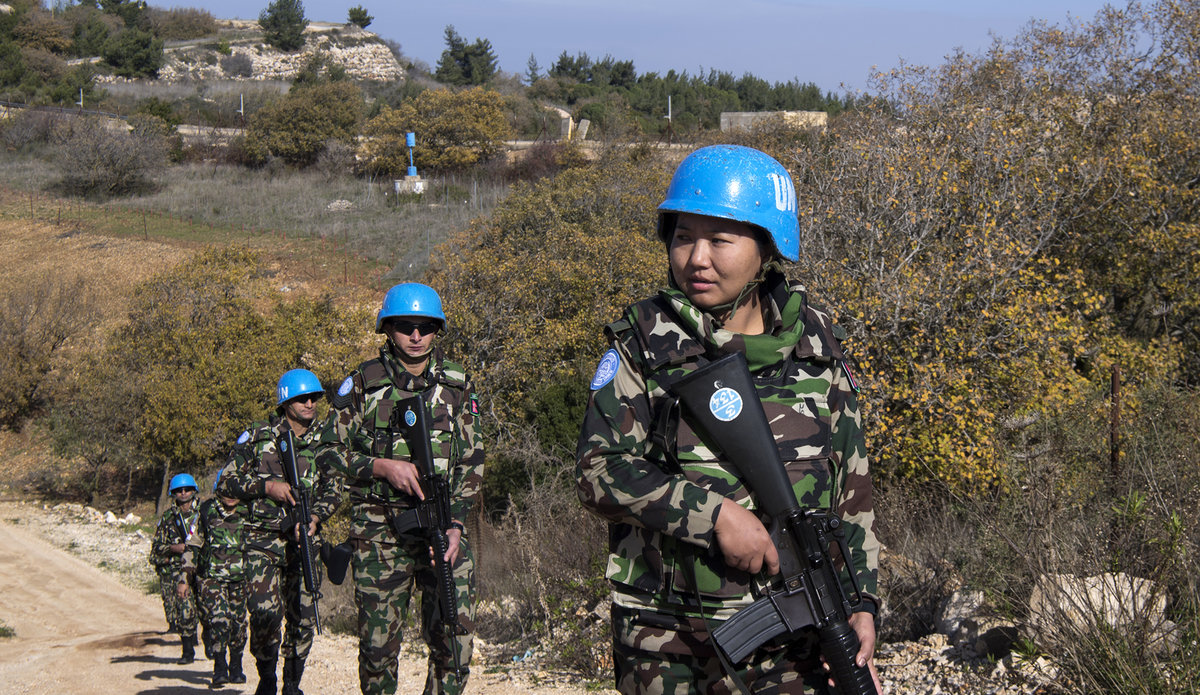UNIFIL | United Nations Peacekeepers | Lebanon | Israel | Hezbollah | Nepali in Peacekeeping

Five United Nations Interim Forces In Lebanon (UNIFIL) peacekeepers have sustained severe to mild injuries — two on October 10, another two on October 11, and the latest on October 16. Other 15 peacekeepers suffered smoke-induced skin and gastrointestinal complications after the Israeli Defence Forces (IDF) fired several rounds near their base.
Issuing a joint statement on October 15, Nepal alongside other 33 countries, condemned the attacks of October 10 and 11, urging “parties of the conflict” to guarantee peacekeepers’ safety and security.
Although no Nepali peacekeepers have been reported of injury, observers in Nepal say that the response of condemnation came too late since the country has been a leading contributor in UN missions.
Similarly, the European Union (EU) expressed grave concerns, condemning all attacks against UN missions on October 13. Its High Representative said, “The troops and other personnel of UNIFIL … are working under difficult conditions in the defence of international peace and security.”
The statement added, “We are also deeply concerned by Hezbollah’s continued launch of rockets into Israel that has to stop, and by IDF strikes in densely populated areas of Lebanon, causing a heavy toll on civilians and the displacement of many.”
The EU called for an immediate ceasefire in Lebanon, and “for all parties to commit and work towards the full implementation of Security Council Resolution 1701.”
On October 17, UNIFIL knocked down an unidentified drone, also known as an uncrewed aerial vehicle (UAV), heading towards their ship on the southern Lebanese coast.
In a statement released later that day, a UNIFIL spokesperson said — following standard protocol as mandated by the UN Security Council, “electronic countermeasures were used and the UAV fell and exploded on its own.” They are currently investigating the origin of the attack.
It was the first time the UN mission made a move, protecting the lives of its peacekeepers since a renewed conflict broke out between Israel and Hezbollah on October 1. A day earlier, the IDF had notified UNIFIL of their intention to invade “limited” regions in southern Lebanon, said UNIFIL.
“Despite this dangerous development, peacekeepers remain in position … we have contingency plans ready to activate if absolutely necessary,” said the statement. “Peacekeeper safety and security is paramount, and all actors are reminded of their obligation to respect it.”
The UN mission has reiterated in its multiple statements that crossing into Lebanon is in violation of Lebanese sovereignty and territorial integrity, and a violation of resolution 1701. Yet, Israel has not stepped down, and launched “direct and apparently deliberate fire” at the mission’s various positions, reported UNIFIL.
Meanwhile, Israeli Prime Minister Benjamin Netanyahu on October 14 refuted the allegations of deliberate attacks and said, “the charge that Israel deliberately attacked UNIFIL personnel is completely false. It’s exactly the opposite. Israel repeatedly asked UNIFIL to get out of harm’s way. It repeatedly asked them to temporarily leave the combat zone, which is right next to Israel’s border with Lebanon.”
With 876 personnel, Nepal is the fourth highest contributor to the 9,732-strong UNIFIL as of July 31, 2024. Indonesia tops the list with 1,232 personnel, followed by Italy (981) and India (898), while 16 member states of the EU contribute to the mission.
Besides, Nepal is the topmost contributor in overall UN missions. Lebanon is where Nepal sent its first ever military observers in 1958. The Nepali Army began its peacekeeping journey in 1974 deploying its first commission in Lebanon.
UNIFIL was established on March 19, 1978, with a mandate by the Security Council to restore international peace and security and facilitate humanitarian access in the region following Israel’s first invasion of Lebanon that year. The Security Council regularly renews the mission’s mandate with the latest extension till August 31, 2025.
It has been over a year since Israel has taken on multiple fronts — Hamas in Gaza, Hezbollah in Lebanon, Houthis in Yemen and the Shia Islamic regime in Iran — following a Hamas attack on its territory on October 7 last year, which killed nearly 1,200 Israeli civilians, took 251 into hostages and injured more than 5,000. In a recent development from Gaza, Israel claimed to have killed Hamas leader Yahya Sinwar.
Read More Stories
Kathmandu’s decay: From glorious past to ominous future
Kathmandu: The legend and the legacy Legend about Kathmandus evolution holds that the...
Kathmandu - A crumbling valley!
Valleys and cities should be young, vibrant, inspiring and full of hopes with...
Consumer Court rulings spark nationwide doctors’ strike
Doctors across Nepal suspended all non-emergency medical services on Monday in protest against...